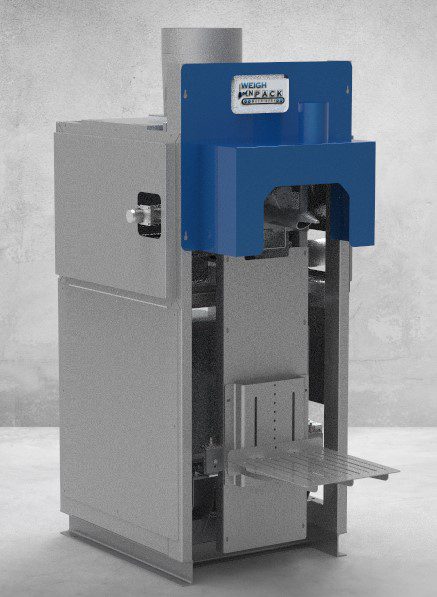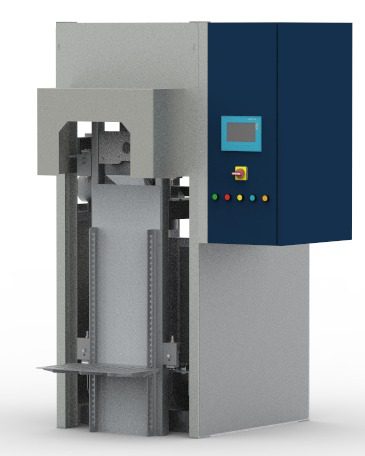Stationary Packing Machines: Unmatched Precision and Reliability for Your Business
Introduction
At Weigh N Pack, we understand the importance of efficient, accurate, and reliable packaging in industrial operations. Our stationary packing machines are engineered to deliver unparalleled performance across a wide range of industries. Designed with cutting-edge technology, durable materials, and user-friendly features, these machines are perfect for handling a variety of materials, ensuring your packaging process is seamless and effective.
Whether you are packaging powders, granular materials, or agricultural products, our stationary packing machines provide a robust solution that meets your specific requirements. With three distinct types of machines to choose from, Weigh N Pack ensures that every business—big or small—has access to the perfect packaging equipment.


Comprehensive Features of Our Stationary Packing Machines Versatile Machine Types and Applications
Our stationary packing machines are available in three specialized configurations to cater to diverse material types:
- Horizontal Machines: Ideal for materials that are having very low bulk density or having fluffy in nature due to excessive air in them, such as fine clay, pigment, silica, Titanium dioxide, etc.. The machines are specifically designed to handle material in a gentle way, providing precise and secure packaging that ensures product integrity during storage and transport. The horizontal design is better suited for low-density products, as the larger periphery area ensures effective packaging. It also features a specially developed three-position cylinder for accurate dosing operation during filling, by which we allow machines to do fine and coarse filling operations for significantly improved weight accuracy.
- Vertical Machines: Perfect for fine and semi fine materials like heavy density powders, maize or corn starch, cement, white cement, wall putty, and ready mix material. These machines excel in maintaining consistency in weight and packaging quality, ensuring that your products meet the highest standards. They are equipped with features such as open-mouth bag use, wall-back operation, and automatic bag discharge options (with manual discharge available as well). Vertical machines are particularly effective for materials with high density.
Auger Type Packing Machines: Specifically designed for aerated products such as precipitated silica, spices,etc.. These machines are capable enough to providing efficient and precise solutions for handling lightweight and aerated materials.These machines are tailored for durability and efficiency, offering robust solutions for high-volume operations. Commonly used in regions like Rajasthan (Guwahati, Sirohi) and Gujarat (Gunj).
High Durability and Quality Construction
Built using premium-grade materials like MS steel and stainless steel (available in grades such as SS 304 and SS 316), our stationary packing machines are designed to withstand the rigors of daily industrial use. Only the material in contact is modified to reduce costs while maintaining high performance. Weighing between 10 kg and 50 kg, these machines have the best stability and long-lasting performance. With proper care, they have a lifespan of 12–15 years, making them a cost-effective investment for businesses.
Exceptional Accuracy
Weigh N Pack stationary packing machines are equipped with advanced weighing systems and specially developed three-position cylinders for precise and consistent measurements. This level of accuracy reduces material wastage, optimizes operational efficiency, and guarantees customer satisfaction with every package.
Customizable Solutions
At Weigh N Pack, we understand that no two businesses are alike. That’s why our stationary packing machines can be customized to meet your specific needs. From selecting the construction material—such as MS steel or stainless steel—to integrating advanced automation features, we tailor our machines to fit seamlessly into your operations.
Competitive Pricing
Auger Type Machines: Starting at ₹7 lakhs, offering exceptional value.
Horizontal and Vertical Machines: Starting at ₹8 lakhs, designed for precision and reliability across various industries.
Industries Benefiting From Our Stationary Packing Machines Food Processing Industry
- Pack powders like flour, sugar, spices, and other food products with exceptional accuracy and hygiene.
- Maintain product quality and compliance with industry standards.
Agricultural Sector
- Efficiently package bulky items such as grains, hay, and more.
- Ensure secure and durable packaging, suitable for transport and storage.
Pharmaceutical Industry
- Handle fine powders and sensitive products with precision.
- Meet stringent regulatory requirements for packaging quality and safety.
Chemical Industry
- Safely package chemical powders and granular materials.
- Maintain product integrity and prevent contamination.
Construction and Industrial Materials
- Effectively package moderately hard materials like clay, cement, and wall putty for transport and storage.
- Specialized configurations for products like fly ash and building materials.
Why Choose Weigh N Pack Stationary Packing Machines?
Tailored for Your Needs
Our machines are built to meet the specific requirements of your industry, ensuring seamless integration and optimized operations. Same machine can be utilized for filling open and valve type bags.
Robust and Long-Lasting:
High-quality construction ensures a lifespan of over a decade with minimal maintenance.
User-Friendly Design:
Intuitive controls and easy maintenance make these machines ideal for businesses of all sizes.
Unmatched Accuracy:
Advanced weighing systems, properly engineered design and precisely arranged functions guarantee precise measurements, reducing wastage and ensuring efficiency.
Exceptional Customer Support:
From consultation to after-sales services, our team is dedicated to helping you achieve your goals.
Delivery and Installation: A Hassle-Free Experience
At Weigh N Pack, we believe in providing comprehensive support to our clients. From the moment you place your order, our team ensures a smooth and hassle-free experience.
Delivery
Our delivery timelines are tailored to your location, ensuring your machine arrives promptly and safely. A dedicated delivery agent will coordinate the process and provide updates throughout.
Installation
Our technicians will handle the complete installation of your stationary packing machine, ensuring that it is set up for optimal performance. We also provide on-site training to your team, helping them operate the machine efficiently and safely.
Costing
Our stationary packing machines are competitively priced to ensure accessibility for businesses of all sizes.
The costing of the machine depends on your need of automation and needed functions in particular for getting satisfactory filling results. All the options are fully customised and the machine can be upgraded to a higher variant at any point of time.
With this investment, you receive
A machine that is precisely tailored to your operational needs.
Long-term durability with a lifespan of 12–15 years.
Minimal maintenance requirements, lowering your operational costs over time.
Our pricing structure is transparent, with no hidden costs, and we offer flexible customization options to enhance the machine’s value for your business.
If you have any further questions about selecting the right machine or understanding the pricing, our team is here to guide you at every step. We aim to make the process as smooth and informative as possible, ensuring you invest in a solution that delivers long-term benefits.
FAQs
Yes, our stationary packing machines are designed to cater to businesses of all sizes, including small businesses. We offer customizable options and flexible pricing to ensure that even small-scale operations can access reliable and top-quality packaging solutions. Our machines provide high efficiency, precision, and durability, making them a cost-effective investment that will help improve your packaging processes and boost productivity, regardless of the size of your business. Whether you are just starting or expanding your operations, our machines are built to scale with your needs.
Selecting the right stationary packing machine depends on the type of materials and type of bags you handle and the specific requirements of your packaging process. Our expert team will assess your materials, their characteristics (such as bulk density, particle size, moisture and some other parameters, and your production goals to recommend the ideal machine. We offer three distinct types: horizontal, vertical, and agro-type machines, each designed for different applications. Additionally, we encourage clients to visit our factory to see live demonstrations of each machine, ensuring you make an informed decision about which machine best fits your business needs. We also offer a thorough consultation before the purchase to ensure a perfect match for your materials.
Our stationary packing machines are designed for durability and minimal maintenance. The key to prolonging the life of your machine is regular cleaning and occasional checks for wear and tear, especially for moving parts and weighing systems. To keep your machine in optimal condition, we recommend performing routine inspections and following the maintenance guidelines provided at the time of purchase. These guidelines include proper cleaning procedures, recommended lubrication intervals, and tips for replacing worn-out parts. We also offer preventive maintenance services, ensuring your machine continues to perform reliably for years.
Absolutely! At Weigh N Pack, we believe that our relationship with customers extends beyond the sale. Our dedicated after-sales support team is always available to assist with any issues, from troubleshooting and repairs to providing replacement parts. We ensure that your machine operates at its peak performance throughout its lifespan by offering a comprehensive range of support services, including training, software updates, and machine calibration. If necessary, we can schedule on-site visits to address any technical issues. Our goal is to ensure that your machine provides reliable, efficient service, minimizing downtime and optimizing production.
Our stationary packing machines are built to last for 12–15 years with proper care and minimal maintenance. These machines are made using high-quality materials, such as MS steel, ensuring that they can withstand the rigors of daily industrial use. The lifespan can vary depending on the frequency of use and maintenance practices, but with regular servicing and the use of original spare parts, the machine will continue to perform at high efficiency for many years.
Yes, we offer live demonstrations of our stationary packing machines to help you make an informed decision. You can visit our factory and see the machines in action, testing them with materials similar to what you use in your operations. Our team will guide you through the setup, functionality, and features of each machine, providing a comprehensive understanding of how it works. We also offer online demonstrations for convenience if you are unable to visit our facility. This ensures that you fully understand the capabilities of the machine and how it fits your business needs before making a commitment.
Accuracy is one of the key features of our stationary packing machines. Our machines are designed with advanced weighing technology that ensures precise and consistent measurements, reducing material wastage and ensuring product quality. Whether you’re packaging powders, granular materials, our machines offer reliable accuracy, consistently delivering packages with the correct weight, in compliance with industry standards. This level of precision is crucial for optimizing operations and maintaining customer satisfaction.
Our stationary packing machines are versatile and can handle a wide range of materials and a variety of bags which covers differences in bag size or change in type of bags(Open or valve type). The horizontal machines are ideal for high aerated or very fine products like pigments, while the vertical machines are perfect for powders and fine materials like cement, maize starch, etc. The Auger-type machines are designed for products which are difficult in flowability of having spices, and precipitated silica. No matter the material, our machines ensure safe, efficient, and accurate packaging, making them suitable for various industries including food, pharmaceutical, chemical, and agricultural sectors.
Get in Touch Today
Invest in the future of your business with Weigh N Pack’s stationary packing machines. Contact us today to request a quote, schedule a consultation, or arrange a factory visit. Let us help you transform your packaging process with our innovative and reliable solutions!
